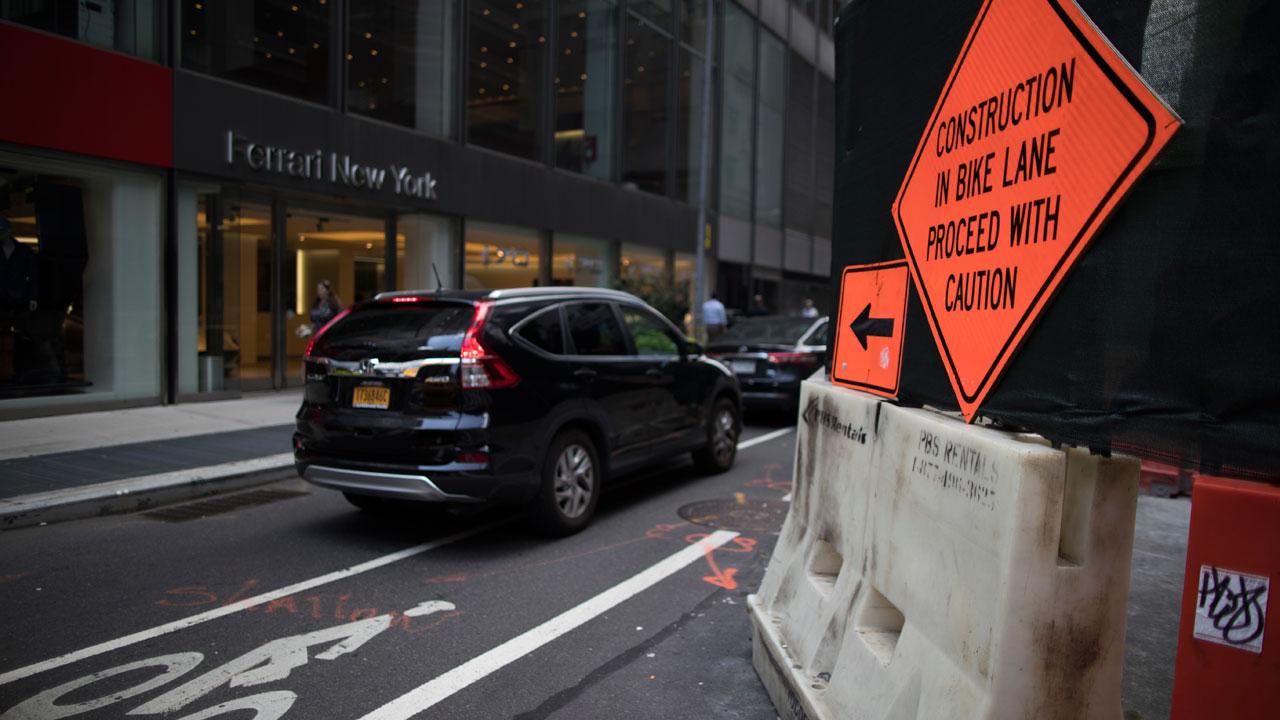No federal infrastructure bill? States come to the rescue.
From California to New York, a chorus of voices have long warned of the deteriorating state of U.S. infrastructure, but as tensions in Washington D.C. boil over hopes for a federal funding package appear dashed.
Now, amid inaction in Congress, states are pursuing a number of new initiatives to raise money to improve metropolitan transportation systems, roads and highways, water treatment plants and other investments.
“Overtime with the continued population growth expected in major metros putting a strain on existing infrastructure assets, we expect more U.S. cities to turn to alternative funding sources,” the CEO of engineering firm AECOM, Michael Burke, told investors earlier this month. “Anything that comes out of Washington will be a positive on top of that, [but] we're not counting it into our plans and it is not built into our growth plans.”
Martin Marietta Materials Inc. CEO Ward Nye also recently said the building material supplier expects “state level funding through bond issuances, toll roads and tax initiatives…to continue to grow at a faster rate than near-term federal funding, leading to additional growth opportunities for our company.”
An infrastructure bill has been a proverbial “white whale” in Washington D.C. While it has strong bipartisan momentum, it consistently falls behind other priorities like health care and tax reform.
Optimism over such a measure rose once Democrats retook the House in the midterm elections last November. With political divisions at a fever pitch, it was one area – along with drug pricing – that had the promise to bring both parties together.
President Trump, House Speaker Nancy Pelosi, D-Calif., and Senate Minority Leader Chuck Schumer, D-N.Y., had even agreed to pursue a $2 trillion infrastructure package.
The prospect of legislation got early support from top companies who stand to benefit from it. Caterpillar CEO Jim Umpleby recently called the investment something “the nation’s infrastructure needs.”
“We have seen a certain amount of spending at the state and local level, which has certainly helped. But if we had a national infrastructure bill, I think that would be obviously a positive thing for Caterpillar, and we would very much welcome and support that kind of a bill,” he said at the industrial giant’s investor meeting.
The National Association of Manufacturers has also estimated that a $1 trillion injection of federal funding could spur 11 million U.S. jobs.
An attempt at a grand compromise, however, collapsed on Wednesday after Trump walked out on a planned infrastructure meeting with the two Democratic leaders following warnings from Pelosi that the president is allegedly engaged in a cover-up that could warrant impeachment talks.
| Ticker | Security | Last | Change | Change % |
|---|---|---|---|---|
| CAT | CATERPILLAR INC. | 726.20 | +47.89 | +7.06% |
| ACM | AECOM | 101.79 | +0.72 | +0.71% |
As federal gridlock continues, states are exploring new ways to boost reserves.
While federal funding is deemed essential, local funding for infrastructure is significantly higher, accounting for nearly 80 percent of all spending in the U.S., according to data from the Congressional Budget Office.
And spending on state and local construction is on the rise, topping $298 billion in March, a 9 percent year-over-year increase but a decline from February's $301 billion.
In New York City, increased congestion pricing at the Metropolitan Transportation Authority is expected to generate as much as $15 billion to help improve the region’s decrepit subway system. Several other cities, like San Francisco and Los Angeles, are pursuing similar initiatives.
And in California, a state that AECOM's Burke recently called “the hottest market on the planet right now,” an increased gasoline tax that voters failed to overturn in the November elections will help subsidize new infrastructure investments.
Following California’s actions last year, four states – Alabama, Arkansas, Ohio and Virginia – are pursuing similar measures to raise the gas tax. Since 2013, more than half of all U.S. states have hiked their gas tax.
Congestion pricing is a more difficult option.
A working group in Boston recommended a $5 fee for trips through the city’s busiest areas, but Mayor Martin Walsh has yet to take a formal position on the matter.
CLICK HERE FOR THE FOX BUSINESS APP
And while lawmakers in Massachusetts are pushing legislation on the issue, Republican Gov. Charlie Baker has already registered his objection when he vetoed a bill last year to start a pilot program on congestion pricing.




















